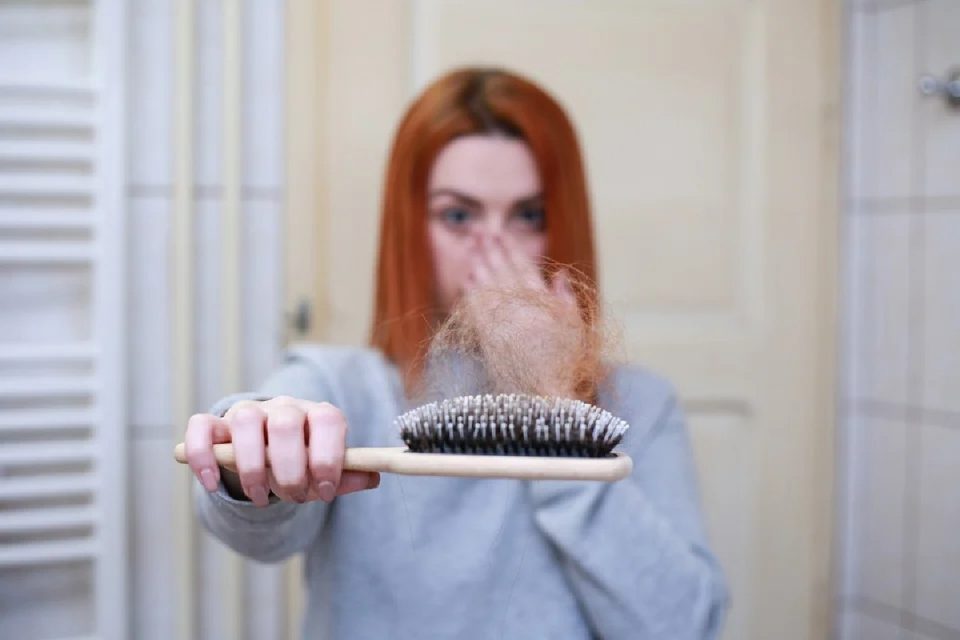Causes of Hair Loss in Men and Women: Several factors influence hair loss, including various medical, emotional, and lifestyle conditions that can prevent the body from properly absorbing the essential nutrients it needs for healthy hair.
Table of Contents
Causes of Hair Loss in Women
Hormonal Changes
Hormonal changes associated with menopause can alter the hair growth cycle. Although menopause as a cause of hair loss is relatively rare, there have been a few cases. Other hormonal changes in the body — notably thyroid problems and hormonal responses to changes in the autoimmune system — play a role in thinning hair and hair loss in some women. Women with PCOS can suffer from hair problems due to hormonal imbalance and increased sensitivity to male hormones naturally found in the female body.
Postpartum
Despite being a beautiful and natural process, pregnancy can be a cause of great stress for a woman’s body. Consequently, it is common for women to see their hair weakened, and even bald patches appear after childbirth until their hormonal levels are normal. However, it is a temporary alteration, and it usually goes away over time. Please note that we do not recommend taking Viviscal while pregnant or breastfeeding.
Contraceptives
The pill is the most common contraceptive method among women. It contains a combination of estrogens and progesterone that can occasionally damage the hair’s health when there is a genetic medical history of alopecia.
Also read: Why High Protein Diets Can Affect Your Health
Causes of Hair Loss in Women and Men
Age
In people between 20 and 40, it is common to have 615 hair follicles per square centimeter. This figure drops to 485 at age 50 and 435 at age 80. Each hair becomes more acceptable, and overall hair volume is reduced.
Stress
When we are under stress, the adrenal glands produce more adrenaline, which can lead to increased production of testosterone and dihydrotestosterone (DHT). If you don’t have enough hormones to neutralize this effect, the result can be less healthy hair.
In some people, stress damages the condition of their hair, leading to a vicious cycle: stress affects the hair cycle, which increases the person’s stress level.
Poor Nutrition
A rich diet in protein, vitamins, and minerals is essential for hair. The hair follicle is a non-essential tissue in the body and, therefore, one of the last tissues to receive nutrients. Long-term deficiencies can lead to premature hair loss.
Protein
It is recommended to take at least 150 grams of protein a day. Protein-rich foods include meat, chicken, fish, beans, eggs, cheese, and tofu. Since hair is 80% to 95% protein, this is an important area of the diet.
Iron
Lack of iron can contribute to hair loss, especially in men and women with a deficient protein intake in their diet.
Other minerals
Other essential minerals for healthy hair are zinc (found in shellfish and legumes), silicon (found in potatoes, green and red peppers, and sprouts), magnesium (found in green vegetables and nuts), and essential fatty acids (such as omega fatty acids found in fish).
Abuse of Dyes, Lacquers, and Heat
The abuse of sprays, dyes, irons, or curlers can damage the hair in the long term. It is advisable that people who consider their hair damaged rethink what products to use on their hair and scalp and consider introducing other nutritional supplements and healthier styling methods.
Tobacco
Tobacco can affect hair health. Smoking has been shown to impair circulation, which can affect the number of nutrients and oxygen that reach the scalp’s hair follicles through the blood vessels.

